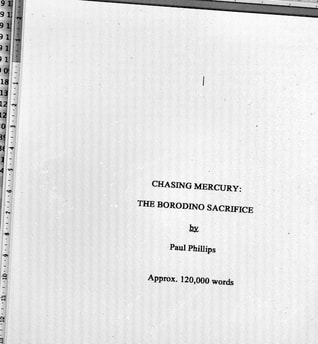 Things have been quiet on the short story front because I've been working on getting my novel into actual send-out-able manuscript form. Since this has involved pulling all the separate chapters together into one file for the first time since the early drafts, it has also enabled me to search the whole document for redundant or repetitive words and formations - things like the 'actual' and 'working on' in the first sentence above. Other words I've searched for include pointless little qualifications like fairly, barely, nearly, almost, quite and as if; as well as that sneaky little grace note, little itself. Then, of course, (and there's another couple) there are the words that unnecessarily frame the narrative through the characters' perceptions: they heard a..., she sensed..., he thought he..., etc. Those seemed to add something, somehow, first time around. And they do. They add distance, delay, indecisiveness and, worst of all, word count. (As for that persistent use of something, somehow and seemed, that's lack of belief in your own storytelling. I should know; I had to cut out dozens.) What a Find and Replace search won't help you with is spotting those unnecessary adverbs and adjectives. I'm not talking about style here - as far as I'm concerned, that's between you, your conscience and that other nagging voice in your head that may or may not be Stephen King. Actually, I think it depends totally on context and you can't have a hard-and-fast rule (and every time I pick up one of his books I spot adverbs galore). No, I'm talking about getting rid of them or replacing them to reduce word count without affecting content. And this throws up an interesting conundrum... You see, it's one thing to scrap an adjective or adverb completely. Often that works. Sometimes it doesn't. And, yes, there might well be a better and more economical word to use: dazzling instead of very bright. But what about if you wanted to say very bright? What about if the character whose POV this is (but who's no longer being described, unnecessarily, as perceiving these things) isn't himself very bright? It might feel artificial for him to find something dazzling when that's not what he would call it. Likewise, everybody will tell you to replace he ran quickly with he sprinted, but what about if the sentence continues: and then, when he remembered who he was running to, he ran not-so-quickly...? Another example, also from the first sentence above: the use of the made-up adjective 'send-out-able'. Obviously there are better ways to say that. Shorter ways (let's not get into hyphens-reducing-word-count now). But what are they? Sure, I could have said presentable, but that suggests the look of it and then you're into a discussion about formats, fonts and so on. I could, I suppose, have said submittable, but that, being a particular submission management system, opens up a whole new can of worms. Plus, of course, I was aiming for an artless, folksy tone of voice, so as not to sound like someone pretending to be a professional who knows what they're talking about. The thing I've learned is that sometimes the wordier, clunkier phrasing is the effect you wanted and tightening it up spoils it. Hemingway knew this. Imagine if he'd changed a sentence like 'It was very hot in the sun' to 'It was scorching'. So those are some of the things I've been wrestling with over the past few months as I whittled The Borodino Sacrifice (the first and, at this stage, only Chasing Mercury novel) down to size. And by that I mean getting it down from an unwieldy, overwritten 144,000 words to just under the magic number of 120,000. Why - and indeed if - that is in any way a magic number should be a subject for another day and most likely a more experienced sender-outer of manuscripts... But hey, baby steps (with or without baby shoes). I did it!
0 Comments
|
My story...I've been writing for as long as I can remember (I think my first letter was a P). I got a degree writing about other people's writing and ever since then I've earned a living writing commercially, one way or another. But I never stopped writing and refining my own stuff. I just didn't do anything with it, until now. Archives
May 2024
Categories |
 RSS Feed
RSS Feed